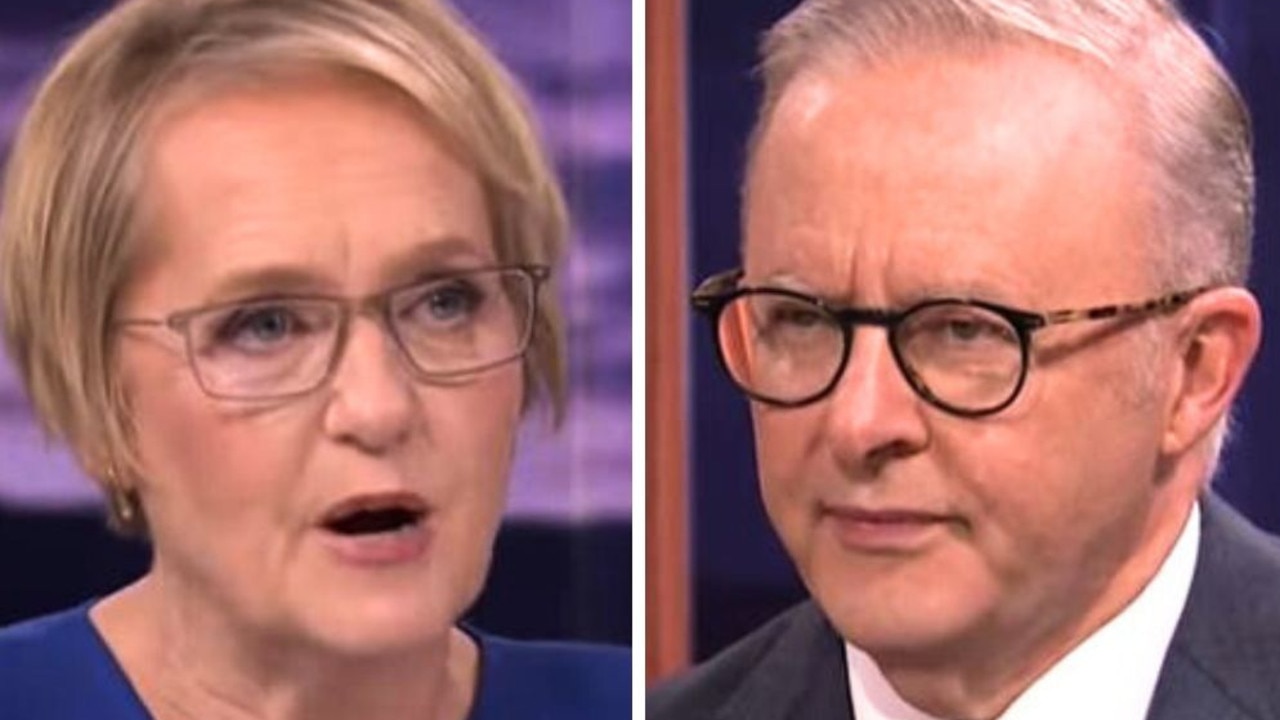Inside focus group slamming ‘arrogant’ Prime Minister Scott Morrison
Scott Morrison’s fate lies in the hands of one crucial group of voters. And things are not looking good for our Prime Minister.

Federal Election
Don't miss out on the headlines from Federal Election. Followed categories will be added to My News.
These are the voters who will decide the Prime Minister’s fate on May 21.
Gathered around their laptops and phones on a Thursday night, they are swing voters who have been chosen from electorates in Western Sydney to participate in a focus group.
News.com.au has changed their names to protect their privacy. The group is carefully selected and skewed towards women, as many male voters said they had made up their minds.
The news is not good for Scott Morrison. In fact, it suggests a shift is on in the final week of the campaign.
The Prime Minister knows it, and it’s the reason why he promised voters on Friday (Mr Morrison’s birthday) he could “change”, and that he understood they sometimes regarded him as a “bulldozer”.
“He’s had his time to shine and in my eyes, he hasn’t really achieved everything he said he would,’’ Amanda, 26, a client service officer, says.
“I feel like he hasn’t really done a good job. I find him selfish.
“We’ve had Scott Morrison for the past couple years and I just feel like he’s made things worse.”
Stream more election news live & on demand with Flash. 25+ news channels in 1 place. New to Flash? Try 1 month free. Offer ends 31 October, 2022 >
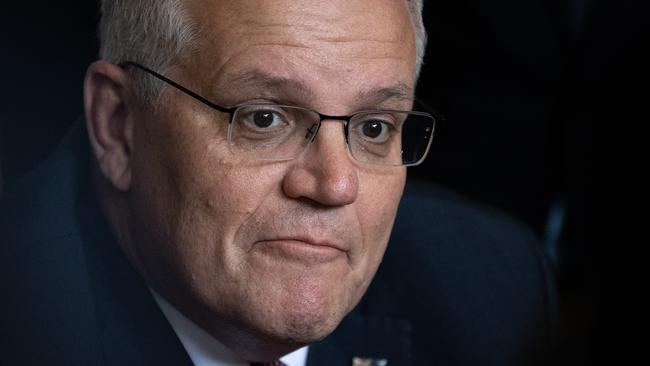
Asked to describe the Prime Minister, the verdict is almost universally brutal.
The positives? He’s “experienced”.
The focus group is designed to provide an insight into the thinking of voters who are shaping as the biggest threat to Mr Morrison’s hopes of victory.
The group has agreed to participate via Zoom in a guided discussion to deliver insights into the campaign.
During a 90-minute focus group that news.com.au observed on Thursday night, the voters assembled by the RedBridge group returned again and again to perceptions of the Prime Minister’s character.
The words they use to describe him: Arrogant. Selfish. Inflexible. Obnoxious. A bad leader. A wannabe.
Pollsters use two methods to predict voter behaviour. Quantitative data provides the raw numbers – the two party preferred data you see in Newspoll.
But qualitative data is provided by guided focus groups, and it brings you the details and the depth to understand their full implications. For example, Newspoll tells you who is the preferred PM, it doesn’t tell you why.
Amanda says the main thing she hears from Scott Morrison “is how good he’s been the last few years”.
“Yep. But I don’t agree that he’s been good,’’ she says.
“So I sort of just change the radio station when he comes on. I don’t really listen to anything to do with Scott Morrison, to be honest.”
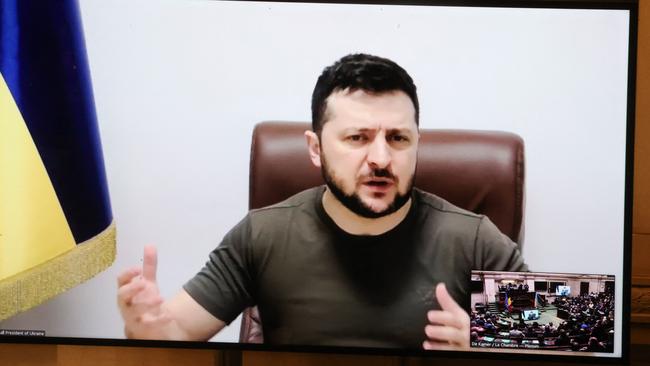
Mary is thinking about the Prime Minister and compares him with the Ukrainian President.
“I just think that sometimes when I look at him,’’ she says, and describes the wartime leader in a T-shirt and fatigues.
“And that’s what I’d want our prime minister to be, at the ground level. Not shaking hands with people in a suit.”
He knows his “finances and stuff” another voter observes.
“But I think he comes across as obnoxious. I think he’s a wannabe.”
Hawaii factor
And then it happens. It’s the moment that occurs in just about every focus group, according to pollsters.
The voters raise the issue of Mr Morrison’s family holiday while bushfires raged down Australia’s east coast.
Unprompted.
Sally, 25, is sitting in a striped T-shirt in her lounge. She’s still annoyed by the bushfire holiday 18 months after the event.
She lives in the electorate of Werriwa in Sydney’s western suburbs. She’s a carer. But she doesn’t find the Prime Minister very caring.
“Where was he? When there were bushfires? Wasn’t he in Hawaii or something?’’ says Sally.
“Like he just left the country. And that’s not how a leader should be. A leader should be like, ‘my country needs me’. Clearly he just …”
She trails off and shakes her head in disgust as another voter, Amanda, interrupts.
“He just wanted a holiday,’’ she says. She shakes her head too.
“Yeah,’’ says Sally. “I feel like he thinks he’s bigger than us, he’s looking down on the whole country. He feels he’s superior.”

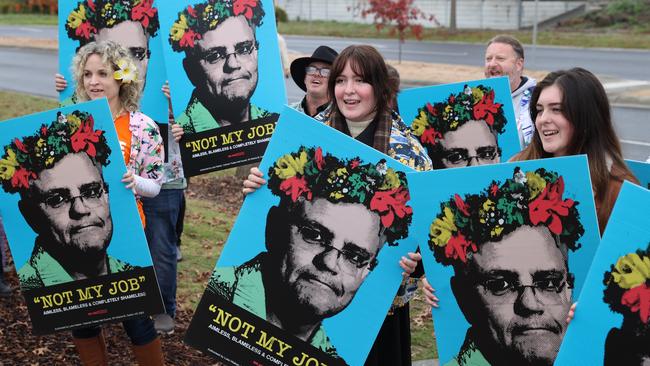
RedBridge’s Kos Samaras says what the voters are describing relates to how politicians make us feel when we experience trauma.
“If you accentuate the stress at the time, we’ll forget all the good stuff you’ve done and will come after you when they come out at the other end,’’ he says.
“That’s exactly what’s going on here.”
By comparison, many voters say they miss NSW Premier Gladys Berejiklian.
“She made them feel safe,’’ Samaras says.
Loose units and smarmy smirks
None of the voters seem impressed by Scott Morrison suggesting that Labor leader Anthony Albanese is a “loose unit” for backing a wage rise for low income workers.
But they share the Prime Minister’s concerns that it could be bad news for small business operators. They just don’t like the language.
“He’s arrogant. If that was any other workplace and you sat there at a meeting and someone put forward their idea and you said ‘you are a loose unit’, you would be in so much trouble,’’ a female voter says.
“It would be considered as a sign you’re unprofessional. He could have said ‘out of touch’. But like to do that and then sort of, with his smarmy smirk …
“I’m not a Labor supporter. I just don’t particularly like … yeah, I find him very arrogant. Just that just made it even clearer to me.”
It’s possible that the term “loose unit” is from Liberal research.
RedBridge’s Tony Barry, who led the focus group on Thursday night, says that simply regurgitating lines from focus groups isn’t useful.
“If you want to send a signal about change, announce a big policy that demonstrates that. Like child care,’’ he says.
“Simply regurgitating lines from focus groups is a very poor use of research. It should inform your strategy, not provide a script.
“The only time you use verbatims is to reinforce a prejudice or attribute. Example: ‘Beazley’s got no ticker’.”
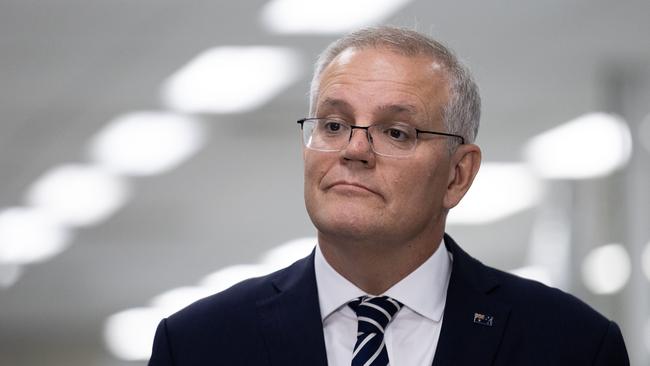
Getting rid of Scott Morrison
Laura, a child care worker, is asked what her main issue is in the election.
“My key thing is getting rid of Scott Morrison. I don’t know the best way to go about that. I don’t know enough about it,’’ she says.
The researcher asks again, what is the main issue that’s important to her? A policy perhaps?
No, she explains, that’s it. She just wants him gone.
“I don’t follow it closely but I do think we need a change,’’ says another voter.
What’s the most compelling argument to vote for Scott Morrison?
Dan raises JobKeeper. Maria admits that “compared to other nations we seem to be doing well? But it doesn’t feel like that.”
Arrogant and out of touch
Ann describes the PM as “arrogant and very inflexible”.
“He doesn’t seem interested in anyone’s idea unless it’s his own. And to me, that’s the epitome of a bad leader,’’ she says.
Lauren says he is “definitely arrogant and out of touch”.
“He tries extremely hard to come across as being relatable, that he understands the average Aussie person, but I don’t think he does at all.”
Disengaged, they’re sick of the lies from both sides of politics.
But they’re not impressed by Anthony Albanese who is “forgetting his figures’’ and “doesn’t always know his stuff.”
The voters do think he’s “relatable” and understands “doing it tough”. But they complain they are being asked to choose between “bad and worse”.
But his story of growing up with a single mum has resonated.
Anthony Albanese as the battler
And what’s the most powerful reason to vote for Anthony Albanese?
“That he’s done it tough,’’ says Laura.
“Not necessarily that I’m buying it, but that’s, I think that’s the image.”
Ann says she’s hearing that “they’re a good but safe alternative to what we’ve got at the moment.”
Maria is not sure. She’s worried.
“I’m hearing the media. And I’m hearing the negative comments like, you know, he’s not up to it. He doesn’t know the figures,’’ she says.
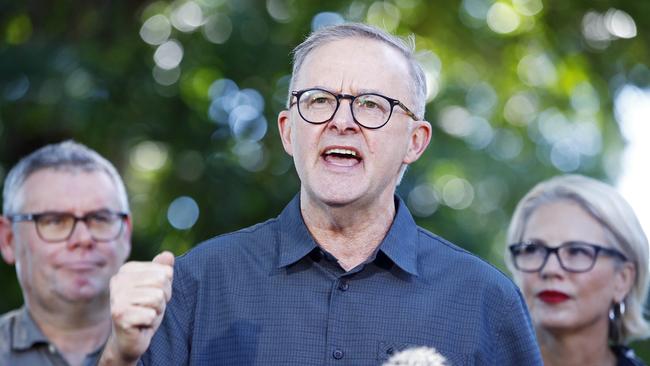
“Look, I know I’ve heard a little bit about Albanese about his upbringing. He had a very tough upbringing. And I suppose that speaks to me that he realises where he’s come from?
“He sounds like he wants to be there for them. But it’s again, it’s just costing it out and paying for this, who pays ultimately in the end?”
Andrea warns that “the money has to come from somewhere”.
Sally remembers the slogan from the Liberal ads.
“What is it? It’s not a won’t be easy, with Albanese.’’
“I feel like they have big dreams, but they’re not realising that it’s not possible to do half the things without, like, ripping someone off. Somewhere down the line. You know what I mean?”
Better the devil you know
What is the first thing that will come into your mind if Scott Morrison is on the front page of The Sunday Telegraph on May 22? He’s won the election.
“I want you to close your eyes. What’s your first thought when you see that headline?’’ the voters are asked in the focus group.
“Cranky,’’ is one answer.
But what if Anthony Albanese wins? “Excited,’’ says one voter. “A fresh start,’’ says another.
But also frightened about what happens next. What will Labor leader Anthony Albanese do? The voters aren’t sure.
“I am not convinced Anthony Albanese has his policies in order,’’ says Maria. She says she’s going to vote for Scott Morrison.
Andrea thinks she might go with the status quo. “Better the devil you know,’’ she says.
Lunatics running the asylum
If it is bad, the swing voters point out they can always vote them out.
It’s not like we are going from a democratic society to Communism, says a female voter.
“Like, it’s a couple of years. If the lunatics are running the asylum, it’s a few years,’’ Andrea says.
And if Anthony Albanese is no good? The party might dump him anyway.
“If things are bad enough, things just change in the middle of the term. If people don’t agree something can be done,’’ she says
Originally published as Inside focus group slamming ‘arrogant’ Prime Minister Scott Morrison
Read related topics:Scott Morrison





